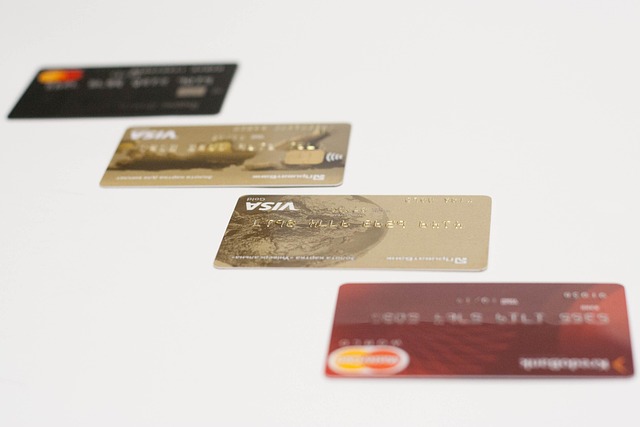Exploring Credit Card Options: Solutions for First-Time Applicants and Those with No Credit
Starting your credit journey can feel overwhelming, especially when you have no credit history to show lenders. First-time credit card applicants face unique challenges in proving their creditworthiness, but numerous options exist specifically designed for newcomers to the credit world. Understanding these specialized products and application processes can help you build a solid financial foundation while accessing the convenience and benefits that credit cards provide.

Credit cards represent an important stepping stone in establishing financial identity, but navigating this landscape can be challenging for those without credit history. Fortunately, the financial industry recognizes this common dilemma and offers specialized solutions for first-time applicants. By understanding the available options and application processes, newcomers can make informed decisions that align with their financial goals and circumstances.
What Options Exist for First-Time Credit Card Applicants?
First-time credit card applicants have several pathways available despite lacking credit history. Secured credit cards represent one of the most accessible options, requiring a security deposit that typically becomes your credit limit. This deposit minimizes the lender’s risk while giving you an opportunity to demonstrate responsible credit behavior. Student credit cards offer another viable solution for those enrolled in higher education, featuring more lenient approval requirements and often including educational resources about credit management.
Retail store cards and gas station cards frequently have more flexible approval criteria, making them potential entry points into the credit system. Additionally, becoming an authorized user on a family member’s existing account can help you benefit from their established credit history while building your own. Credit builder loans, while not credit cards themselves, can complement your strategy by helping establish payment history that strengthens future card applications.
How Credit Cards Function for Individuals Without Credit History
Credit cards for those without established credit typically operate with training wheels in place. Initial credit limits are generally lower, ranging from ₱5,000 to ₱20,000, allowing issuers to minimize risk while providing cardholders an opportunity to demonstrate responsible behavior. Interest rates tend to be higher than those offered to established borrowers, reflecting the increased risk assessment. However, these rates become less relevant if you adopt the practice of paying balances in full each month.
Many starter credit cards include additional monitoring and educational features designed to help newcomers understand credit management. Regular payment reporting to credit bureaus is a crucial function, as these reports directly build your credit history. Most issuers now provide free credit score monitoring tools, enabling you to track your progress as you establish your financial reputation. Understanding these operational aspects helps first-time applicants set realistic expectations and maximize the benefits of their first credit relationship.
Different Credit Card Types and Their Flexible Approval Processes
Secured credit cards stand as the most accommodating option, with approval rates significantly higher than unsecured alternatives. The security deposit, typically ranging from ₱5,000 to ₱25,000, functions as both collateral and your credit limit. Student credit cards feature streamlined approval processes that consider educational enrollment alongside basic income requirements, often accepting part-time employment or allowances as qualifying income sources.
Store credit cards implement tiered approval systems, sometimes offering limited initial credit lines that can increase with responsible usage. Credit union cards frequently employ more personalized evaluation methods, considering factors beyond credit scores such as existing banking relationships and community ties. Some innovative fintech companies now offer credit cards based on alternative data points like bank account management and bill payment history rather than traditional credit scores, creating new pathways for those without established credit.
Navigating the Credit Card Application Process Successfully
Successful credit card applications begin with thorough research to identify products specifically designed for first-time applicants. Before applying, verify your income documentation, as most issuers require proof of ability to repay, even for starter cards. For students, scholarship funds, part-time work, and even parental support may qualify as acceptable income sources when properly documented.
Limit your applications to avoid multiple hard inquiries that could damage your nascent credit profile. Consider starting with pre-qualification tools that perform soft credit checks to gauge approval odds without impacting your credit score. If denied, request specific reasons for the rejection, which issuers are legally required to provide. This information proves valuable for addressing weaknesses before subsequent applications. Many rejected applicants find success by applying for a secured card with the same institution or by seeking a face-to-face application process at a local bank branch where additional factors might be considered.
Types of Credit Cards for New Financial Journeys
Secured credit cards represent the foundation of the first-time applicant market, with numerous financial institutions offering variations on this model. These cards typically require security deposits between ₱5,000 and ₱25,000 and report payment history to major credit bureaus. Student credit cards include educational components alongside credit-building features, often with no annual fees and modest rewards programs to encourage responsible usage.
Retail store cards frequently serve as entry-level credit products with more accessible approval requirements, though they typically carry higher interest rates. Some innovative financial institutions now offer credit-builder card products that function as hybrids between traditional credit cards and installment loans, creating structured pathways to credit establishment.
Below is a comparison of common credit card types for first-time applicants:
| Card Type | Typical Requirements | Features | Approval Difficulty |
|---|---|---|---|
| Secured Credit Card | Security deposit, basic income | Deposit becomes credit limit, reports to bureaus | Easiest |
| Student Credit Card | Proof of enrollment, minimal income | Educational resources, no/low annual fee | Moderate |
| Retail Store Card | Basic identification, minimal income | Limited use, higher interest rates | Moderate-Easy |
| Credit Union Card | Membership, basic income | Personalized evaluation, competitive rates | Moderate |
| Authorized User | Primary cardholder approval | Builds credit without approval process | Easy (with willing primary) |
Prices, rates, or cost estimates mentioned in this article are based on the latest available information but may change over time. Independent research is advised before making financial decisions.
The journey toward credit establishment requires patience and consistent responsible behavior. Most first-time cardholders can expect to build sufficient credit history within 6-12 months of regular on-time payments, potentially qualifying for unsecured credit products thereafter. Remember that your first credit card serves primarily as a financial tool for building credit rather than a spending vehicle. By maintaining low utilization ratios and never missing payments, you create a solid foundation for your broader financial future.




